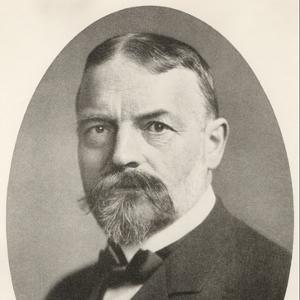
At the end of the 19th century, pharmacology was given an independent place at the medical faculty of the Ludwig Maximilian University. The first habilitation for the subject of pharmacology was achieved in 1871 by Hermann v. Böck (1843-1885) with "Studies on the decomposition of protein in the animal body under the influence of morphine, quinine and arsenious acid".
However, only the second representative of the subject at the LMU was granted his own institution with a full professorship. Hermann Tappeiner, Edler von Tappein (1847-1927) was born in Meran, the son of the well-known anthropologist and tuberculosis researcher Franz Tappeiner. After studies in Innsbruck, Göttingen, Leipzig, Heidelberg and Tübingen, he received his doctorate in 1872 in Leipzig and habilitated in 1877 in Munich under the physiologist Carl Voit "On the oxidation of cholic acid with acidic chromic potash and sulfuric acid." In 1879, Tappeiner was appointed professor of physiology and dietetics at the Royal Veterinary School in Munich. In 1887 he was appointed to the newly created chair of pharmacology at the medical faculty of the Ludwig Maximilian University in Munich. In 1893, Tappeiner moved into his own institute for experimental pharmacology at Nussbaumstrasse 28.
Von Tappeiner gained unqualified recognition with his work on absorption processes in the gastrointestinal tract and the role of intestinal bacteria. He also dealt with phototoxic reactions in sensitization to drugs and became known for the wide distribution of his "Anleitung zu chemisch-diagnostischen Untersuchungen am Krankenbette" (1885) and his "Lehrbuch der Arzneimittellehre und Arzneiverordnungslehre" (1890). In 1899, the title of nobility was entered for him and his descendants in the Bayer. Adelsmatrikel registered for him and his descendants. Hermann v. Tappeiner became emeritus in 1923 at the age of 72 and died after a short illness in Munich in 1927.
After 36 years of leadership of the institute by v. Tappeiner, Walther Straub followed in 1924.
